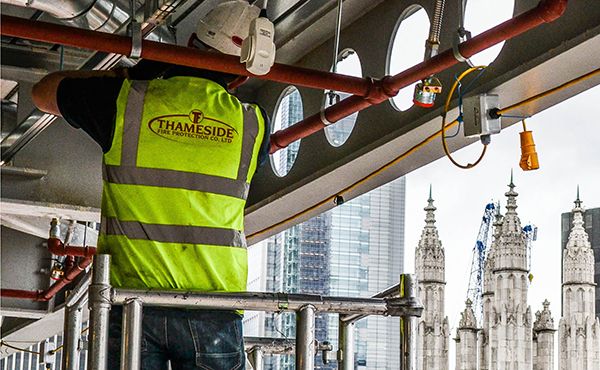3 Common Causes of Fire in the Hospitality Industry
All industries have their own set of fire hazards, and the hospitality sector is no exception. This blog will outline the most common causes of fire in the hospitality industry to help you prepare and protect yourself accordingly.
Kitchens & Cooking Equipment
Whether it’s in a hotel, restaurant or cafe, a kitchen presents a number of fire hazards that can escalate if not properly monitored. From flames on a hob to cooking oils and electrical appliances like fridges and freezers, there is potential for several different types of fires to break out.
Prevention
All staff members should be thoroughly trained and aware of all fire hazards in the kitchen environment. Ensure that the correct types of fire extinguisher are present and easily accessible, and that staff members are trained to use them safely. Be vigilant with the storage and organisation of flammable materials like oils, towels and paper-based products - never keep them near open flames or areas where they could be vulnerable.
Electrical Equipment
Regardless of your industry, electrical equipment is present in every commercial building, and despite its importance to everyday life, there is always a risk of electrical fires where electric equipment is concerned. Whether it's a large appliance like a fridge, or something much smaller, all it takes is one spark from faulty wiring for a fire to start.
Prevention
The most effective way of preventing electrical fire is by scheduling regular Portable Appliance Testing (PAT) for your electrical equipment. PAT testing will assess the safety of your appliances - if safe, a sticker will be applied certifying it, with the date of the test clearly stated. If not, the appliance will either need to be repaired or replaced.
You must also ensure that all electrical circuits undergo an Electrical Installation Condition Report (EICR), carried out by a qualified electrician. This test should be conducted every 5 years, and all records of it should be kept.
Appliances should be turned off when the premises are closed for the evening where possible. Although some will need to be kept on at all times, others should be shut off to minimise the risk of sparks causing a fire when the building is empty.
Smoking
This is a huge risk for any business that allows smoking on site, but it’s particularly precarious at hotels. Guests smoking in their rooms is a common yet dangerous problem - they could fall asleep whilst smoking, and the lit cigarette could set fire to the bed linen, upholstery and other flammable materials in their room. For establishments like restaurants, staff and guests smoking outside can be hazardous if cigarette butts are not disposed of correctly.
Prevention
Smoke alarms must be installed in every room, and the ‘no smoking’ rule must be enforced and clearly displayed throughout the premises. If a guest flouts these rules and causes a fire, the smoke detectors will help to facilitate a quick response and subsequent evacuation. Designate spacious, clearly labelled smoking areas outside, and ensure that cigarette bins are nearby for safe disposal.
Keep Your Business Premises Safe
At Thameside Fire Protection, we are a team of fire safety consultants who specialise in the supply of
fire safety equipment and risk assessments for clients across the UK. With 35 years of experience, we can ensure that your commercial or domestic property is as safe as possible. For more information,
contact us today.


